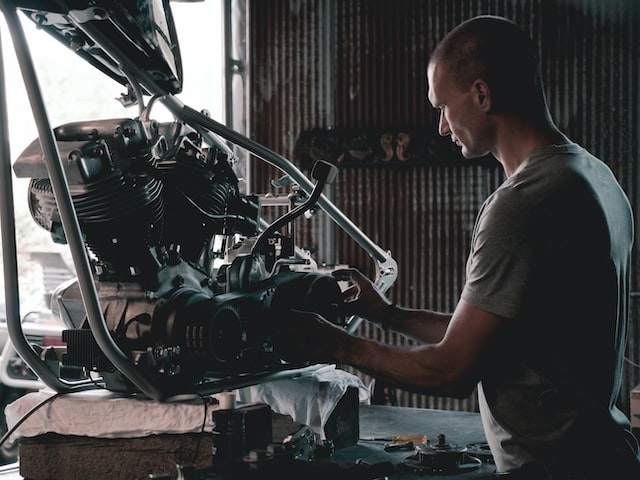Being in a collision can be stressful and traumatic. Following filing a report with a collision centre, one of the many decisions that come with this experience is deciding whether to replace your vehicle or fix it. In situations like this, you may be faced with many questions, such as “What is my car worth?”; “What is the best car mechanic near me?”; and “Will I ever get my car back to normal?”
Thankfully, there are many ways to decide what to do with your vehicle post-collision, and options to consider including a collision appraisal. Your decision will largely depend on how much damage your car suffers and its associated repair costs. With minor collisions, a few days in the repair shop is enough to get your car back on the road. But it might cost more if you’re dealing with damage to vital parts of the vehicle, such as the brakes or extensive damage to the car’s framework. Here are a few things to consider as you decide whether to keep your car after a collision or get a new one.
Is it safe to drive a car repaired after a collision?
It’s understandable to have hesitations about driving your car after it’s been repaired despite its shiny, new appearance. These concerns are natural and many car owners have them. However, it’s completely safe to drive your vehicle if it’s repaired by a qualified collision repair service.
One of the best ways to know if it’s safe to drive your car is by having the best technicians work on it. You may find yourself wondering “is there a high-quality car repair near me”? Here’s how to answer that question.
Research the business before letting any car mechanic work on your vehicle. Ensure the auto body repair shop only hires and works with technicians who have special training in collision repair. Not every auto body shop has such technicians, so it’s important to ask the right questions before letting them work on your car. Look for mechanics who have I-CAR or ASE certifications as these organizations provide technicians with training and test them before awarding certificates.
Another way to put your fears of driving a repaired car is by checking if the auto shop uses up-to-date equipment, such as computer technologies that allow for precise measurements. Many top-of-the-line accident repair shops will have high-tech equipment that helps with frame measuring, locating replacement parts, and more fine details that’ll restore your vehicle’s structural and functional integrity.
Pros and cons of getting a new car
Below are some pros and cons to consider when thinking about getting a new car.
Pros
- A new car will come with the latest technology that can reduce the risk of getting into any collisions in the future. Things such as lane departure warnings and collision avoidance warnings will likely be included.
- Getting a new car might be cheaper than full body repairs of your car when it is totalled. It can also cost less if you’re able to get an attractive financing deal.
- Warranties on new cars cover you for a good period of time so you’re covered if anything goes wrong.
Cons
- New cars cost more to insure since they have higher replacement values.
- New cars tend to depreciate and lose their value quickly.
Pros and cons of repairing the current car
Below are some pros and cons to consider when thinking about repairing your current car.
Pros
- Insurance—There’ll be no need for negotiations for a new insurance rate.
- Faster—Repairing a car after a collision typically takes a few days. You’ll be back on the road in no time and won’t have to wait long to get approval for a new vehicle.
- Less expensive—Repairing your current car will cost less than purchasing a brand-new one in most cases. Even the most expensive repairs cost less than the price of getting a new car.
Cons
- Decrease in value—Your vehicle’s records will show it has been in a collision no matter how well it’s repaired. This means you’ll see a significant dip in value if you ever want to resell your vehicle or trade it in.
What situations work better in each case
There are no absolutes on whether you should repair your current vehicle or purchase a new one after a collision. Situations vary and each collision is unique enough to call for its own decision. Here are a few situations where you should consider one option over the other.
Compare the cost of repairing the vehicle with buying a new one
If the cost of repairing your current vehicle is minor then there’s no need to purchase a new car. However, It might cost you more to repair a car that’s been heavily damaged in a collision. The initial repair might not cost as much as a new car but some cars are never the same after a major car accident.
You may need to keep repairing it every other day leading to frequent maintenance costs. These separate repair costs can add up to almost the same as purchasing a new one. This is fairly common with older vehicles that are already close to obsoletion.
Budget
Not many car owners are in a position to purchase a new car. You may consider what it’ll be like making car loan payments for another four years before deciding to purchase a brand-new car. Fixing your current car might be the better option if you have a tight budget. Repairing your vehicle might cost less than a few months’ car payments for a new car.
Simplicity Car Care offers comprehensive repairs for significant and minor repairs after auto collisions. Our mechanics and technicians are highly trained and qualified to handle the most complex post-collision repairs. If you’ve been in a collision, contact us to book an appointment and schedule a time to bring your car in for repairs.


Recent Comments